Buying Property in Spain
The market in Spain offers variety and value for money, but you need to know what's what. Here are our top tips for buying a Spanish home.
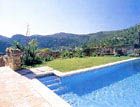

DIFFERENCES IN PROCEDURE You can expect the actual process to be very similar to buying in the UK. What Brits call the exchange of contracts Spanish agents call 'the private contract' but the effect is essentially the same: the deal becomes binding on both sides, and a 10% deposit is paid. However, most good contracts state clearly that if the vendor defaults then they have to repay not only the deposit, but also an additional 10% as compensation. POTENTIAL PITFALLS It is worth remembering that the buyer is always responsible for finding out about all possible extra charges before signing the contract. Many Spanish agents will encourage buyers to forgo a solicitor which may mean you are not aware of these extras, which could mean you could be in for a shock at a later date. It has been known for the English language and Spanish language contracts say different things so make sure everything is translated properly. Watch out for people trying to under declare the value on the title deeds, and saying that it's fine, everybody does it in Spain: it can be incredibly problematic later on. If you are shown a property by a roadside on a Saturday, make sure you see it on a weekday as well. And if a property is in the hills and is sunny in the middle of summer, find out whether it gets sun in the winter, as many do not. WHAT BUYERS WANT Commonly people are looking for coastal properties which are easy to maintain with on-site admin, or a dilapidated farmhouse in need of renovation in the warmer areas inland. Correspondingly these are the places which are (relatively speaking) most expensive. Restored masias are commanding a premium, as they are relatively rare and generally extremely lovely. THE MARKET IN SPAIN It is always important to be aware of how the property market has been doing in an area where you are looking to buy, whether that be here, or in Spain. Barbera Wood, of The Property Finders (TPF), a company which provides buying agents who aim to solve many potential problems for buyers before they get to Spain says: 'For the past five years, prices have been steadily climbing. But it is worth knowing that in many areas where a lot of coastal development has been going on, we may be at the start of some serious price correction. 'This is because there has recently been a high level of speculative investing on apartments which have only just, or are about to, reach completion and have yet to find an end user. Buyers have put down 30% to secure the contract, arranged a 70% Spanish mortgage to kick in at completion and are now realising that what the estate agent told them, i.e they would have no problem selling it on at a huge profit, is untrue. These people are extremely keen to sell which means prices can be lower in some new builds than one might expect.' Apart from which, demand for places in 'any well-located town or village with good road communications to an airport served by a low cost carrier' have been showing large increases. Ms Wood also notes that last year she could find good properties for clients for under £100,000. This year the figure has crept up to £150,000 and the market is drying up fast, she says. In terms of larger country houses, Rita Fryer from TPF comments: 'Each area is quite different. Valencia, for example, will be quite different from Catalunya. In Catalunya, starting prices for a restored masia - would begin at around 1 million euros (just over £600,000). Valencia would be much more.' 'In Andalucía we are now talking about ?400,000 for a largish country house an hour inland, but that rises to about ?750,000 for the same thing half an hour inland,' added Ms Woods. So with an eye on the market, and an eye out for agents who are taking advantage of non-native speakers, buying in Spain should be relatively straightforward. However, if you prefer to deal with somebody who has specialist knowledge and a history of finding the right house for numerous Brits in Spain TPF are a good place to start (they also have an operation in Ireland for those who are thinking of looking on the emerald isle).
Sign up for the Country Life Newsletter
Exquisite houses, the beauty of Nature, and how to get the most from your life, straight to your inbox.
-
 A well-connected rural playground with 23 acres on the edge of the South Downs National Park
A well-connected rural playground with 23 acres on the edge of the South Downs National ParkOld House Farm is an impressive family home with a wealth of amenities that would inspire any rural passion.
By Arabella Youens Published
-
 The UK gets its first ‘European stork village’ — and it's in West Sussex
The UK gets its first ‘European stork village’ — and it's in West SussexAlthough the mortality rate among white storks can be up to 90%, the future looks rosy for breeding pairs in southern England.
By Rosie Paterson Published
-
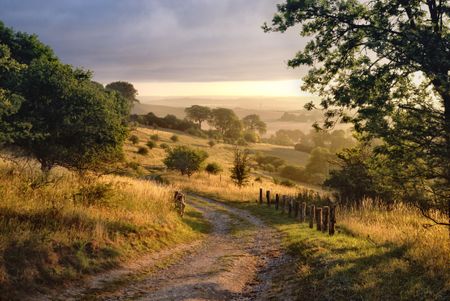 What to expect when you're expecting (to move to the countryside)
What to expect when you're expecting (to move to the countryside)On March 28, agents Michael Graham will be showcasing some of their best countryside properties at their west London office.
By James Fisher Published
-
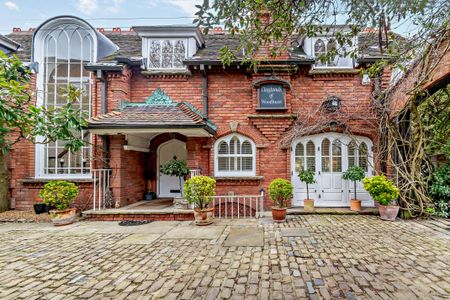 Property Talk: When is the right time to downsize?
Property Talk: When is the right time to downsize?Sometimes our homes can get too big for us, meaning it’s time to downsize. Here, we speak to those involved with the process.
By James Fisher Published
-
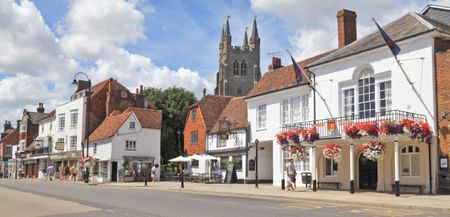 How to win in the property market: Tips from some of Britain's best buying agents
How to win in the property market: Tips from some of Britain's best buying agentsWhether looking for the perfect family home or negotiating on price, buying agents do the heavy lifting–and are well used to analysing the market. Carla Passino gets advice from a few of the best.
By Carla Passino Published
-
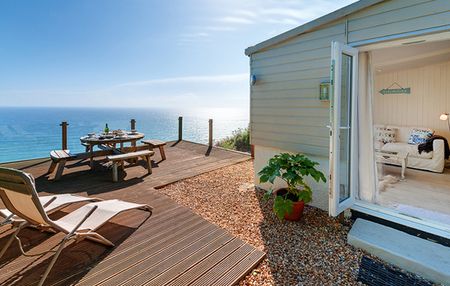 Top tips on renting your holiday home
Top tips on renting your holiday homeThe holiday-home market on the Cornish coast looks set for a lively summer. Arabella Youens finds out how to make the running costs bearable.
By Arabella Youens Published
-
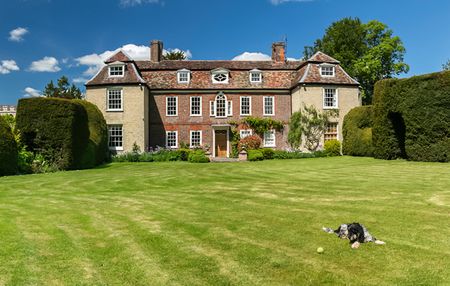 Tips and advice for holiday home owners
Tips and advice for holiday home ownersWith the start of the summer season nearly upon us, more and more country-house owners are dipping into the short-let scene.
By Country Life Published
-
 Property guide to Elstead
Property guide to ElsteadFreddie Mack shares the secrets of Elstead in Surrey, a prime spot for young families looking for properties outside London near good schools
By Country Life Published
-
 Property guide to Cheriton
Property guide to CheritonIf you're considering buying property in or around Cheriton this year, take a look at our property guide which covers where to buy, what prices to expect and where to have fun in the area
By Country Life Published
-
 Make your holiday let work for you
Make your holiday let work for youIf you're considering renting out your holiday property prepare by reading this first
By Country Life Published

